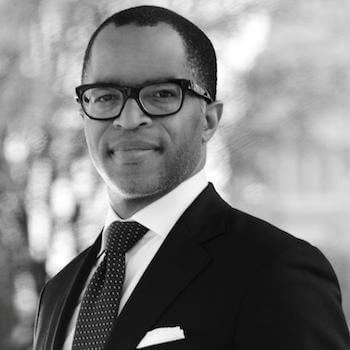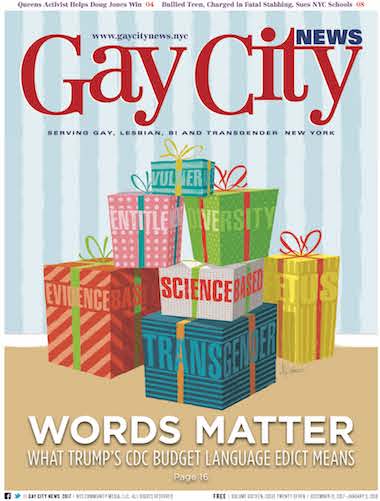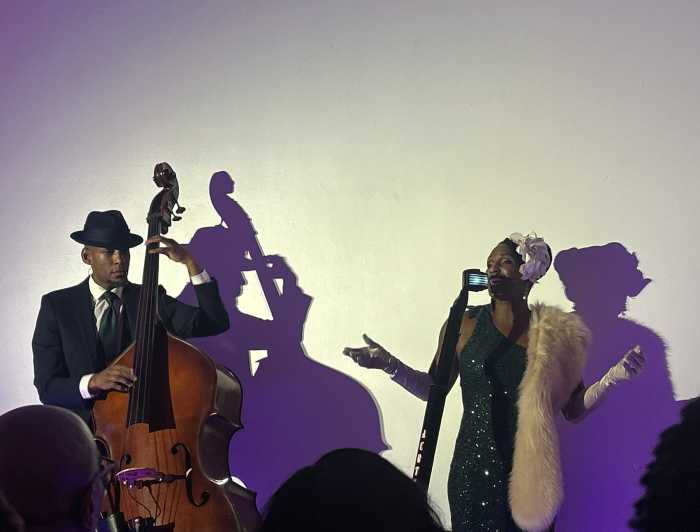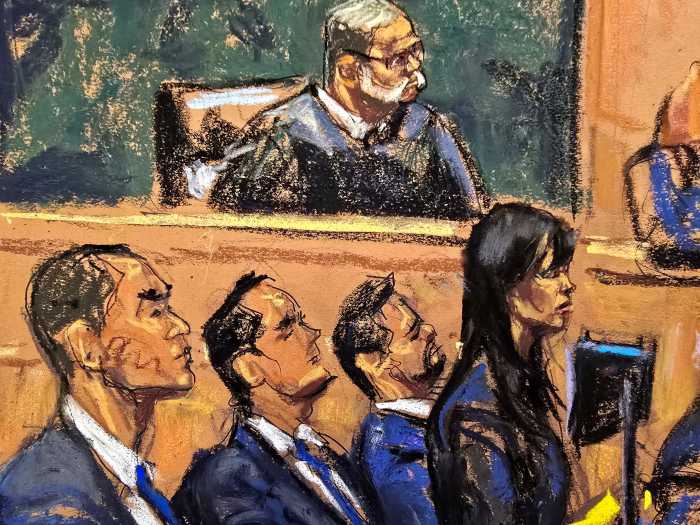BY ED SIKOV | Jonathan Capehart is one of the smartest, most conscience-driven journalists in the country. Currently a columnist and member of the editorial board at the Washington Post, Capehart was part of the winning team for the 1999 Pulitzer Prize for Best Editorial Writing for a series of New York Daily News pieces he and some colleagues wrote about Harlem’s Apollo Theater. Capehart is also an MSNBC commentator as well as a periodic understudy for many MSNBC shows.
Unlike two other gay MSNBC contributors — who shall remain named Steve Kornacki and Josh Barro — Capehart actually answered my interview request with a friendly, speedy acceptance. Here’s what we talked about:
ED SIKOV: After the Supreme Court’s decision in the Obergfell v. Hodges case — the case that struck down state laws against same-sex marriage and provided federal legal status to all existing and future same-sex marriages — you wrote: “In three majority opinions spanning 12 years, Supreme Court Justice Anthony Kennedy gave dignity to the lives of lesbians and gay men. His rulings respected their struggle for full inclusion in the American Dream and opened its doors to them.” Why “their” and “them,” not “our” and “us?”
JONATHAN CAPEHART: Ahhh, it’s the age-old tension. How much do I allow my identity to be a part of a piece? There are plenty of pieces where I have used “us,” “we,” and “our” in print and on television. I usually err on the side of not because using those pronouns all the time can set up a barrier between what I’m trying to say and the reader, who might not be LGBT and open to/ get the point I’m hoping they will see.
In the case of the SCOTUS ruling, I was going for the sweeping statement from a remove to make the historical point less personal and more national in scope. Besides, I’ve come out so many times in my pieces and on television that if someone doesn’t know I’m a member of the tribe, that’s on them.
ES: Who are your role models? Who has influenced you most?
JC: So many people you’ve never heard of. But I’ll give you two. My longtime dear friend Darren Walker, president of the Ford Foundation. His very example, just being himself as an openly gay black man in the world he inhabits, has taught me so much. And my mom, who never once quashed my dreams of being a journalist (and one who is on television, at that) despite us not having anyone in journalism or in television news in our family. Her faith in me and the faith of so many others in my potential taught me to encourage the dreams of others, no matter how impossible they might seem.
ES: Do you have any particular responsibilities as a gay journalist of color that, say, a straight white guy doesn’t have?
JC: Whatever responsibility I feel is of my own making. I don’t feel a responsibility to comment on everything that’s happening to black, LGBT, and black LGBT people. But I know that when I do comment, my voice will be heard loud and clear.
Unlike in my LGBT pieces, I’m more likely to inject my personal experience and thoughts/ feelings — us, we, our, my — in pieces about black people, particularly men, being killed for mundane reasons. In those cases, I do it because, one, folks can see I’m black. But also, I want it to be crystal clear that despite whatever success I might have or that people think I have, my fate is no different than any of the men and boys we’ve mourned in the last 14 months alone. If Sandra Bland can die after a traffic stop; if John Crawford can be killed just for walking with a toy gun in Wal-Mart, which sells toy guns; if Levar Jones can be shot by a state trooper for following his order to get his driver’s license, then there but for the grace of God go I.
ES: In one of your WaPo columns, you write: “The LGBT community must do a better job of making common cause with others seeking equality and freedom from discrimination. Where is the community on immigration? On economic inequality? On racial justice?” It’s easy to call for bridge building, but how do you suggest we accomplish it in practical terms?
JC: Easy. By reaching out and recognizing that LGBT people are touched by every issue roiling this country. There are LGBT undocumented immigrants. There are LGBT people who will benefit from criminal justice reform. There are LGBT people falling victim to excessive force by police. There are LGBT people denied racial justice. There are LGBT people caught in the yawning income inequality gap. The issues facing the community have always been more than about marriage. My hope is that it will do a better job of forging the alliances needed to make progress for all. A perfect example of this: All you need do is look at what Rea Carey is doing at the National LGBTQ Task Force for a great example. Through Twitter and through action, she and the organization she leads are showing how to do build those bridges.
ES: My final question is an homage à Barbara Walters: What makes you cwy?
JC: Two things get me every time. Leontyne Price singing “America the Beautiful” in her “Return to Carnegie Hall” performance. When she hits that high-C on “sea to shining SEA!,” the tears just flow. It’s so beautiful. And the scene in “Auntie Mame” when she realizes who Patrick is and with outstretched arms cries in delight, “Why, darling, I’m your Auntie Mame!” There’s so much joy in that scene. So much joy.
Follow Ed Sikov on Twitter @EdSikov.


































